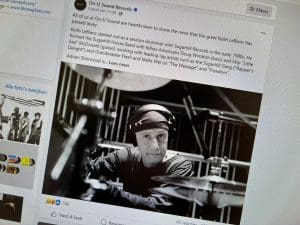Music Education Abroad: Where And How To Get It?

Learning music in any country begins in early childhood. Even in kindergarten children sing songs, dance to music, and just listen to it. In most countries, music lessons become additional and optional in the process of learning in school. In countries with the most advanced secondary education (England, Switzerland, the United States, Canada, Australia, Germany, etc.) music lessons can be chosen for extracurricular activities in the afternoon.
Those wishing to choose music for their future professional career prefer to pursue music education abroad, mainly in countries such as the USA, Great Britain, Germany, and Canada.
The programs of study are quite varied: one can obtain a bachelor’s degree (4 years), a master’s degree (2 years), or a doctoral degree (3 years minimum). Along with this, there are short-term courses, aimed at the study of a particular discipline. Choosing a university is as difficult as choosing an essay writing service. But specialized blogs like essaysadvisor.com make your choice easier.
Higher music education in the UK
You can earn a bachelor’s, master’s, or doctorate degree in music by graduating from a college, art academy, or conservatory.
Higher music education in England covers learning to play a wide variety of instruments (wind, strings, keyboard, drums, vocals), conducting, composition, teaching, music history, and more.
The basis of learning is the performing activity. Music students in England constantly participate in music concerts, competitions, festivals and other events related to music. As part of a chamber ensemble or symphony orchestra, students accompany choir, singers, theater actors, and record their own music and vocals in professional studios.
Students also study theoretical and applied disciplines and analyze major features of the art of music in historical and contemporary contexts.
Some of the best music colleges in the UK include:
- Royal College of Music;
- Royal Academy of Music;
- The Royal Scottish Academy of Music and Drama;
- Central School of Speech & Drama;
- Guildhall School of Music and Drama.
Studying at foreign universities is not cheap. But you can get a scholarship that can cover almost all of your tuition. The results of the entrance exams and the motivational essay are crucial. If you doubt your writing abilities, ask for help from a scholarship essay writing service.
Germany and Austria
Austria is rightly considered the most musical country in the world, so learning music here and in neighboring Germany is considered quite prestigious.
Music is taught not only in specialized high schools but also in universities. For example, if you want to learn the theory and history of music and polyphonic music, and then study and teach these subjects academically, you should choose universities. This is because they focus on theory, and most often the graduates become teachers. If you want to become a performer, choose a conservatory. Conservatories, as specialized schools, teach musical instruments, and train composers and vocalists.
Just as in Great Britain, in Austria and Germany the peculiarity of education is a rich concert activity. Students study a lot with the teacher individually, play in small groups, give concerts and performances, participate in major events and festivals, participate in regional and international competitions.
Some of the best music universities are:
- Universität für Musik und darstellende Kunst Wien;
- Mozarteum Salzburg;
- Musik und Kunst Privatuniversität der Stadt Wien;
- JAM MUSIC LAB Privatuniversität für Jazz und Popularmusik;
- KUG Universität für Musik und darstellende Kunst Graz;
- Hochschule für Musik Franz Liszt Weimar, Weimar;
- Hochschule für Musik und Theater München;
- Hochschule für Musik und Tanz Köln;
- Königlichen Akademischen Hochschule für Musik;
- Hochschule für Musik Detmold.
USA
Of course, for the most advanced professions in the field of music, it is worth going to the United States.
Music education in America is more about new technologies and business. Here you can become a successful sound engineer or producer, participate in the organization of large-scale events, show programs, and concerts. Musicians and vocalists are also well-trained in a wide variety of genres, from classical to rock, jazz to country.
Students of music faculties can expect individual work with professors, classes in small groups, and intensive, sometimes exhausting stage activities. But as a reward — the opportunity to become a world-class musician.
The following educational institutions are worth noting:
The Julliard School, New York
It is one of the best music schools in the world with various undergraduate programs for instrumentalists, vocalists, and composers.
Yale University
Yale University School of Music is for prospective undergraduate and graduate students interested in pursuing a Master’s or Bachelor’s Degree in Vocal Performance, Opera, or Music History.
Harvard University
The best university in the world offers music education from the best teachers in the field. In addition to bachelor’s and master’s degrees, it is possible to complete a graduate degree in music economics.
University of Rochester
The Eastman School of Music at the University of Rochester offers education in several majors, including music theory and composition.
Berklee College of Music
This is probably the best place to study jazz and commercial music. The university has four departments: music technology, composition, professional education, and performance art. Graduates of Berklee College in Boston have become famous for winning Grammys and Oscars for writing music for Hollywood movies.
UCLA Herb Alpert School of Music, Los Angeles
The UCLA School of Music offers courses in jazz, techno, musical theater, and even heavy metal in addition to musicology, where world music traditions are studied.
Canada
In Canada, as well as in the United States and Europe, musical education begins in childhood. You can develop your talent either in a private school (where there is a good musical base) or with a private tutor. For higher education in each province, there are conservatories.
Among the institutions of higher education, you can choose the Harris Institute in Toronto.
Here you can choose a program to study, which is designed for those who want to go into the music business. Students study the modern music industry, new technologies, and entrepreneurship in music.
Is it possible to get a music education online?
For those committed to getting an education online, there are also some pretty interesting options:
USA, Full Sail University Online.
This is where computer game creators, graphic designers, and music managers are trained. So the training here is more about the music business than about creativity as such. Suitable for people who want to become an agent, a promoter, or a manager.
USA, Colorado State University: Online Music Masters in Music Therapy
The university offers training in Music Therapy. This trendy field is gaining popularity around the world and music therapy in particular.
Indiana University Purdue University, USA
Purdue University offers music technology courses focusing on digital and multimedia music. The program offers courses in mixing, mastering, and sound design. There are also courses in music pedagogy, creating websites for musicians, and podcasts.
USA, Massachusetts Institute of Technology
Online Music and Theater Arts training is offered in the form of recorded audio and video lectures in disciplines ranging from classical music to hip-hop, from improvisation lessons to music theory.
Getting a music education will require a lot of diligence and effort. In addition to practical assignments, students are loaded with various types of written work. If you don’t have the energy to study, read how to motivate yourself to write an essay.
Since you’re here …
… we have a small favour to ask. More people are reading Side-Line Magazine than ever but advertising revenues across the media are falling fast. Unlike many news organisations, we haven’t put up a paywall – we want to keep our journalism as open as we can - and we refuse to add annoying advertising. So you can see why we need to ask for your help.
Side-Line’s independent journalism takes a lot of time, money and hard work to produce. But we do it because we want to push the artists we like and who are equally fighting to survive.
If everyone who reads our reporting, who likes it, helps fund it, our future would be much more secure. For as little as 5 US$, you can support Side-Line Magazine – and it only takes a minute. Thank you.
The donations are safely powered by Paypal.










